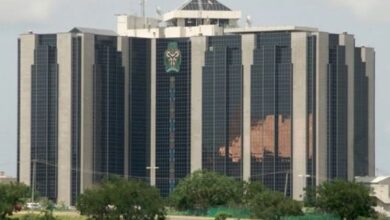Legislators’ Constituency Projects: A Multitrillion Naira Confusion


“The primary job of a legislator is to make laws and represent his or her people. The representation here does not mean forcing a research agency to dig boreholes for your people…”.
When I was growing up in Iwo, Osun State during the early years of Nigeria’s return to democracy there was a Senator who embarked on a project of putting boreholes everywhere in his constituency. It was at a time when boreholes were still quite uncommon in the town and were only built by wealthy individuals in their own houses or by the government. The boreholes were supposed to be the Senator’s constituency project, a novel idea that turned legislators into project initiators, managers and even contractors.
Also Read: Nigeria’s 9th National Assembly: A First Anniversary Review
Unfortunately for the senator and his people, many of those boreholes stopped working quite soon after they were inaugurated, partly because they were poorly built and partly because there was no maintenance support system for them. The senator had assumed correctly that his people needed hygienic sources of water, but he had assumed incorrectly that boreholes by a legislator were the way to solve this problem. The boreholes were expensive to run as they relied on petrol generators. The communities where the boreholes were sited did not have the organisational ability or even interest in maintaining the boreholes. The state and local governments in the area couldn’t be bothered to maintain the political project of a legislator.
Nearly two decades after I witnessed this unfortunate waste of money in the name of constituency projects, nothing much has changed as the National Assembly, State Assemblies and the Nigerian people seem to have doubled down on this peculiar idea. In 2019, the Independent Corrupt Practices and Other Related Offences Commission reported Nigeria has spent N2trillion naira on legislators-driven constituency projects since 1999. In 2020, the ICPC identified over 2,000 projects estimated to cost Nigeria N100Billion.
Suffice to add that a good percentage of this money goes into unsustainable and unwanted projects. A few weeks ago, Premium Times reported that a legislator spent 115 million naira to build health centres in places they weren’t needed. The legislator had in 2017 facilitated the construction of two healthcare centres in Igbara Odo, a small town in Ekiti State.
Also Read: Gender Agenda and the 2022 Constitutional Amendment
The projects were put under the budgets of two federal agencies that had nothing to do with healthcare or construction. The N55m health centre was put in the budget of the Nigerian Press Council while another N60m health centre was put in the budget of the National Agency for The Prohibition of Trafficking In Persons (NAPTIP). The absurdity did not end here. Neither the legislators nor the agencies tasked with building the facilities consulted the people of the community to know whether they actually needed the facilities and if they did, where exactly should they be sited.
The facilities were built, and their equipment bought and delivered, but since 2019, they remain unused. The people of the town say they already have health centres that cater to their needs while the local and state government seem not in a hurry to use the facilities even if for something else. The legislator who forced this project on his people had left office but going by common practices of politicians here, it is quite possible he is still citing the health centres as some of his achievements as a legislator.
May was the month of primary elections for the state and federal legislative houses. I followed the elections in my home state of Osun and in many other states. The campaign for the legislative houses was dominated by promises of things that were not the primary duties of a legislator. Incumbent legislators were busy mentioning all the boreholes they dug, sewing machines they distributed and exercise books they printed and distributed, instead of explaining their legislative agenda and its scorecard.
The primary job of a legislator is to make laws and represent his or her people. The representation here does not mean forcing a research agency to dig boreholes for your people, it means being the voice of your people on the national stage and representing their interests. It means making sure the various agencies of government are working as they should, providing excellent service to the people. It means seeking redress for your people that have been wronged or ignored by the system. It does not mean creating your own unsustainable projects.
Also Read: Shadow states are the biggest threat to democracy in Africa
It’s time we admit that constituency projects are a distraction to both the legislators and the agencies they coerce into executing their various projects. Instead of the Nigerian Press Council focusing on improving press freedom and accountability, a legislator forced them to waste their time on building a healthcentre no one needed. It can also divert resources from where it is needed to where a powerful legislator comes from regardless of need. For instance, the Rural Electrification Agency once executed a transformer project in Yaba, Lagos, a place that could not be, by any definition, called rural.
Since 1999, legislators have focused on lobbying for all manners of projects in their constituency to the detriment of making laws that actually change the lives of their people. Besides, the waste of money this usually constitutes, the incursion of legislators into the work of the Executive arm of government has skewed Nigeria’s understanding of the presidential system of government that we currently run and the separation of power inherent in that system. Legislators should be judged on their ability to make good laws, represent their people and hold the executive accountable for their activities, but instead, they are judged the same way governors and presidents are judged- by the number of roads they tar or the number of women they give money to in their “empowerment” programs.







